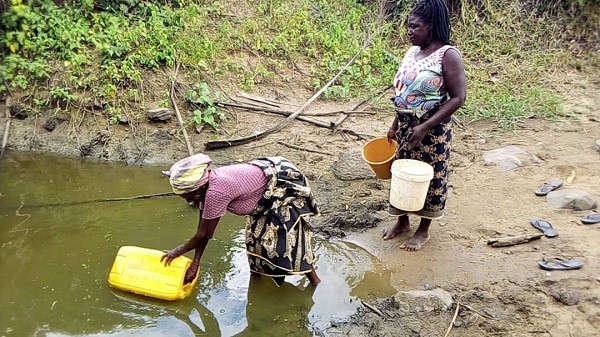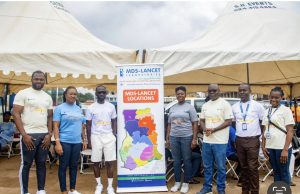Experts in Ghana’s Water, Sanitation, and Hygiene (WASH) sector have underscored the critical need for collaborative efforts to achieve universal access to WASH services by 2030.
They also called on the government to fulfill its commitment by allocating GH¢1.7 billion annually toward achieving SDG 6, which will be crucial in addressing the environmental toll of illegal mining and implementing climate-resilient water infrastructure.
The experts stressed that without proper funding, the vision of universal access to water and sanitation services would remain unattainable.
These statements were made during this year’s Mole Conference, held in Ho, in the Volta Region. In an interview, Ibrahim Musah, Head of Policy and Strategy at WaterAid Ghana, emphasized the urgency of increased government investment, noting, “The President recently committed Ghana to allocate GH¢1.7 billion annually toward WASH (Water, Sanitation, and Hygiene) initiatives through the Ghana Presidential WASH Compact.”
Musah explained that the 2025 national budget would be a pivotal indicator of the government’s commitment to this goal, calling on stakeholders, including journalists, to hold the government accountable.
“Galamsey is a critical threat to our water bodies. Without controlling pollution from these activities, achieving SDG 6 will remain unattainable,” he added, pledging that WaterAid and other NGOs would work alongside the government to mitigate these challenges.
Another focal point was the need for climate-resilient infrastructure. The conference communiqué urged government financiers and development partners to incorporate climate adaptation and mitigation into WASH projects.
“Climate change is already affecting groundwater resources; we urgently need resilient infrastructure that can withstand these impacts,” Musah added.
Senior Planning Analyst and WASH Focal Person with the National Development Planning Commission (NDPC), Patience Ampomah, also emphasized the importance of integrating Civil Society Organizations (CSOs) and local assemblies into the national planning process.
Ampomah highlighted that Ghana has committed to the Sustainable Development Goals (SDGs) and needs a multi-faceted approach to meet its targets. “As a nation, we cannot achieve this alone; we must expand our stakeholder participation in the WASH agenda,” she stated.
She further elaborated on the NDPC’s role as the apex planning body responsible for developing policies and medium-term plans, which local assemblies (MMDAs) must implement. She emphasized the need for support at both district and national levels for these plans.
“The role of CSOs is vital in both the preparation and implementation phases of these plans,” she noted, emphasizing that the success of these initiatives hinges on the acceptance and ownership of the plans by local communities, including traditional authorities and churches.
The discourse was echoed by Samuel Essandoh, the District Planning Officer for the Tanoh North Municipal Assembly, as he also highlighted the positive impact of the WASH program on his assembly. “Though our partners have made significant efforts, we urge additional support from other stakeholders.
Those who have worked with us have found us to be reliable and efficient,” Essandoh remarked, advocating for further collaboration.
District Planning Officer for Asutifi North, Bismark Kyere-Asante, also shared his experience working with IRC and other partners in preparing a WASH master plan.
He acknowledged the crucial role of the NDPC and the Regional Coordinating Council in this collaborative effort, stating, “IRC has been instrumental in coordinating our diverse partners to achieve our district objectives.”
Discussions at the Mole Conference highlighted that, while progress has been made, the sustainability of WASH infrastructure depends on community ownership and behavior change.
Stakeholders agreed that successful implementation would require the engagement of all sectors of society, including local authorities, NGOs, and community-based organizations.
The Mole Conference reaffirmed the commitment of Ghana’s WASH sector to achieving SDG targets by 2030 through enhanced partnerships and stakeholder participation, recognizing that the journey ahead demands collective effort and accountability from all involved.
Source: Isaac Kofi Dzokpo/newsghana.com.gh















